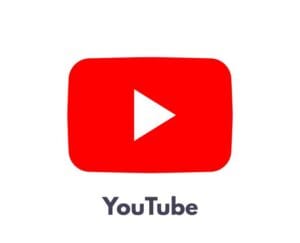Gone are the days when people had to wait a week to watch the next episode of their favorite TV show. Everyone remembers how exciting that was, but it was extremely tedious. We now have access to an endless stream of movies and TV shows. There are also other types of media that can be watched on demand. The rise of online entertainment has revolutionized the way we consume media, from binge-watching to multitasking while streaming. We take a closer look at the impact of online entertainment on our viewing habits. Let’s see the future of media consumption.
Binge-Watching
It is one of the most popular ways people consume media online. It involves watching multiple episodes of a TV show or an entire season in one sitting. Binge-watching has become so prevalent that it has even been added to the Oxford English Dictionary. Binge-watching can be a fun way to unwind after a long day. It can also have negative effects on our health. Sitting for extended periods can lead to health problems such as back pain and obesity. Moreover, binge-watching can disrupt our sleep patterns, leading to fatigue and decreased productivity.

Multi-Tasking
Another way that online entertainment is changing the way we consume media is through multi-tasking. We can watch TV shows or movies while doing other activities such as cooking, working out, or even commuting. This type of multi-tasking is known as “second screening”. It has become a common practice among many people. It can also lead to distractions and a lack of focus on both the media we’re consuming and the task at hand. While second screening can help us maximize our time,
Personalized Content and Recommendations
Online entertainment has also created a new type of media consumption: personalized content. Streaming services like Netflix and Amazon Prime Video can recommend movies and TV shows with the help of algorithms. Those are tailored to our individual preferences. This personalized content is based on our viewing history, ratings, and other data points. The result is a more curated and targeted viewing experience. While personalized content can help us discover new media that we might not have found otherwise, it can also create an echo chamber effect, where we only see content that confirms our existing beliefs and biases.
The rise of online entertainment has also had a significant impact on the entertainment industry. Streaming services like Netflix and Amazon Prime Video have disrupted the traditional model of TV and film distribution. These services have become major players in the entertainment industry, producing original content that has earned critical acclaim and cultural significance. This has led to a shift in power from traditional media companies to online platforms.
The future of media consumption
Online entertainment is probably going to shape it. As more people shift away from traditional TV and film distribution models, The entertainment industry will have to adapt to meet the demands of a new era. We may see more personalized content and interactive experiences that allow viewers to engage with the media they consume. There may also be more experimentation with different types of media. and also virtual reality and augmented reality.
Final Thoughts
To summarize, online entertainment has revolutionized the way we consume media. The Internet has created new ways of watching movies. TV shows and other types of media, from binge-watching to multitasking while streaming. Despite some of the negative effects of online entertainment, such as health issues and distractions, the benefits of personalized content and purposeful viewing cannot be denied. The entertainment industry continues to evolve. We can expect more innovation in the world of online entertainment.











